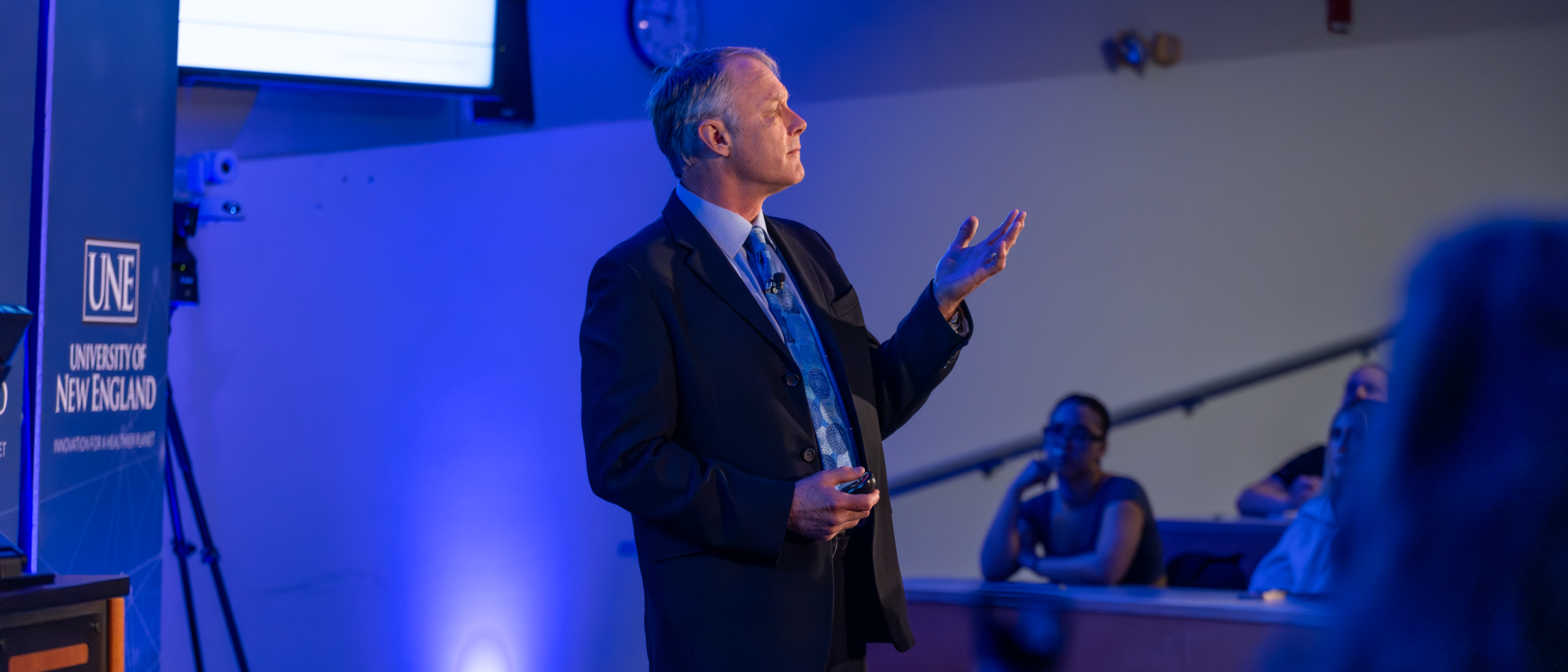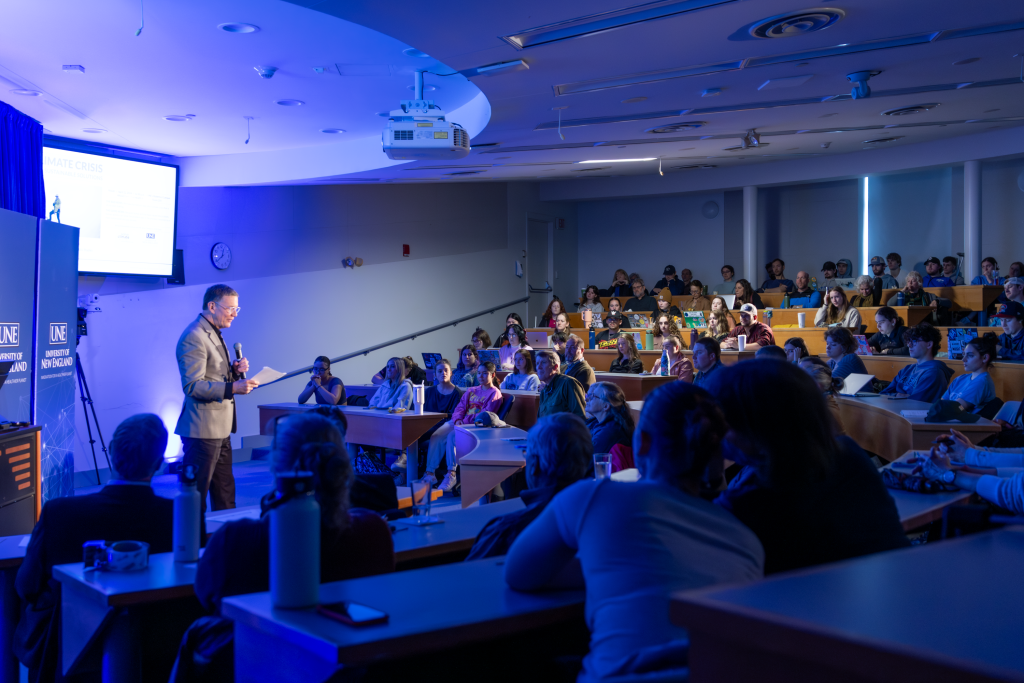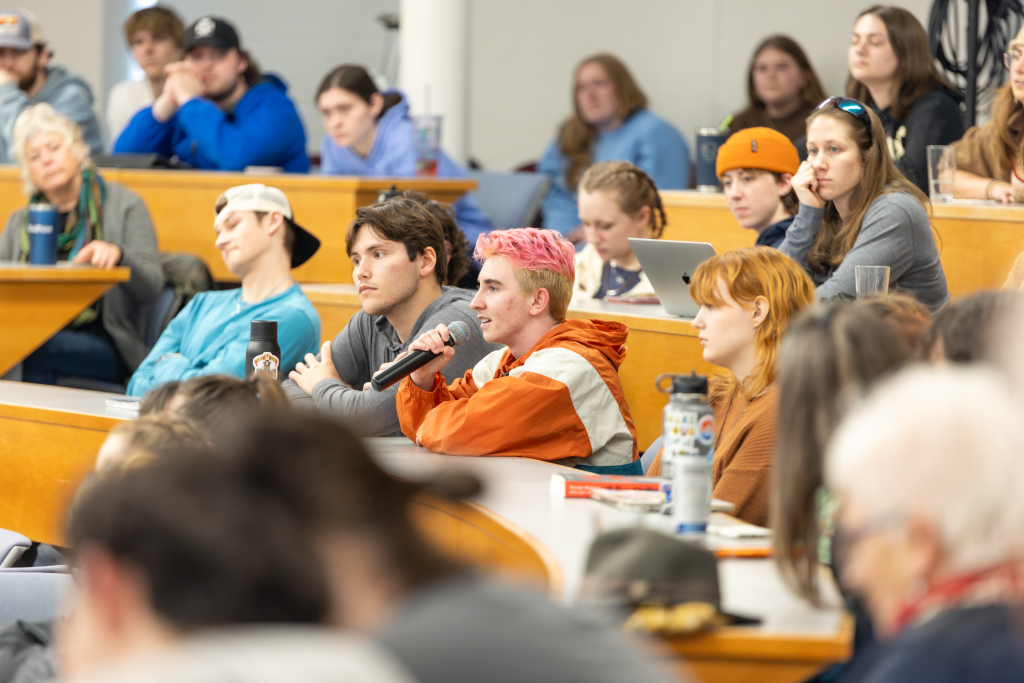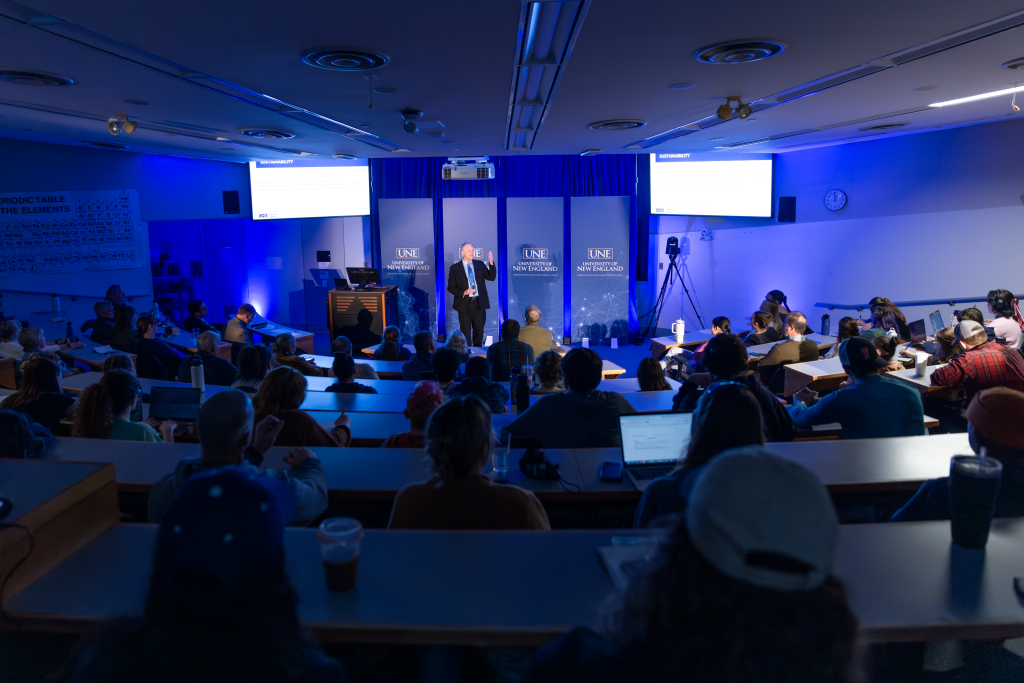UNE’s Cameron Wake calls for collective action at annual climate solutions event

At the University of New England's “Solving Climate by 2030” event on Friday, April 12, climate scientist Cameron Wake, Ph.D., director of UNE North, addressed the climate crisis and the need for immediate action.
The talk, which was also a “Maine Solve Climate by 2030” event, was held on the UNE’s Biddeford Campus and was hosted in partnership with the University’s School of Marine and Environmental Programs and Maine Climate Solutions. Over 130 people were in attendance.
Wake’s presentation, “The Climate Crisis: Science and Sustainable Solutions,” began by diving into the realities of climate change.
“The bad news is we have burned our way into a climate crisis,” he said. “The good news is we've created the problem, so we can solve it if we decide to.”
Highlighting the rapidly warming Arctic region, Wake presented data showing a 45% reduction in Arctic Sea ice extent since 1979, with large areas of the ice pack disappearing, and the unprecedented warming in the North Atlantic Ocean, with temperatures 1-1.5 degrees Celsius above average for over a year.
Citing the latest Intergovernmental Panel on Climate Change report, Wake noted that climate risks increase with every increment of global warming, making it crucial to limit temperature rise as much as possible. He also addressed the potential for cascading tipping points, where the loss of ice sheets, permafrost thaw, and ecosystem collapse could trigger a catastrophic domino effect, making it imperative to avoid crossing these thresholds.
On a hopeful note, Wake outlined a pathway to solutions, advocating for the electrification of thermal loads and a transition to renewable energy sources. He presented emission reduction scenarios, emphasizing the need for global net-zero emissions by 2050 to limit warming to under 2 degrees Celsius.
“Climate change is the innovation opportunity of the 21st century ... in the way that we (can) organize society to address challenges,” he said. “We have to work together. We have to collaborate.”
Wake emphasized the dual necessity of mitigating greenhouse gas emissions while also adapting to unavoidable climate impacts. He stressed that mitigation by reducing fossil fuel emissions is the most crucial adaptation strategy, as it limits the extent of climate change to which societies must adapt. Failing to curb emissions, he warned, would exacerbate the challenges of adapting to severe climate consequences.
“We have to walk and chew gum,” he summarized.
Wake wrapped up his presentation by urging the audience to approach climate solutions with an all-hands-on-deck approach to chart a path toward averting the most catastrophic climate impacts.


